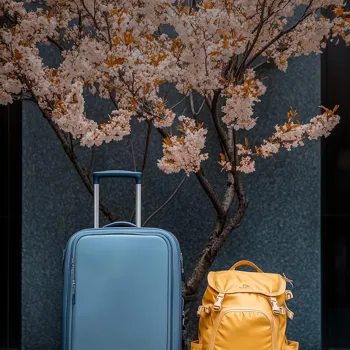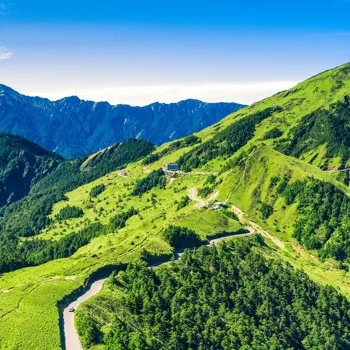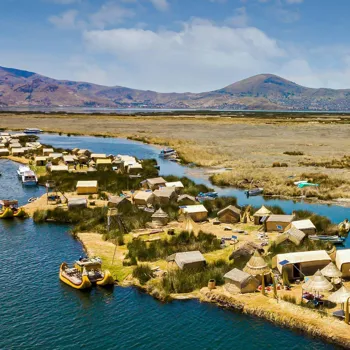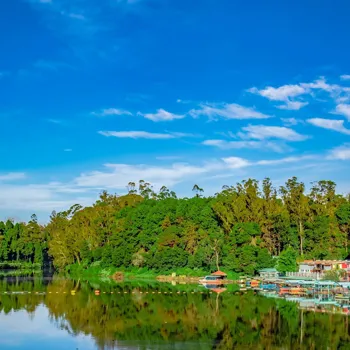Traveling Responsibly: 8 Ways to Minimize Your Environmental Impact. Dive into tips for eco-friendly travel! Choose wisely and explore guilt-free!
Namaste, globe-trotters! Planning a holiday? That’s fantastic!
But before you pack your bags and book those tickets, let's talk about something super important: traveling responsibly.

Our beautiful Bharat and the world beyond are facing environmental challenges, and as travelers, we have a responsibility to minimize our impact and help protect the places we love to explore. It’s not about giving up travel; it’s about making conscious choices that benefit both us and the planet.
So, let’s dive into eight simple yet effective ways to travel responsibly and leave a positive footprint wherever we go.
Choose Eco-Friendly Accommodation:
Think about where you are staying. Opt for hotels, guesthouses or homestays that are committed to sustainability. Look for certifications like LEED (Leadership in Energy and Environmental Design) or Green Key.

These accommodations often have practices like water conservation (using low-flow showerheads), energy efficiency (using solar power, LED lighting), and waste reduction (recycling programs, composting).
Small, locally owned guesthouses often have a smaller environmental impact than large chain hotels. Plus, staying local supports the community directly! Ask questions before you book. Find out about their eco-friendly practices. Do they use local and organic produce?
Do they have water refilling stations? Every little bit helps. Even a simple thing like re-using your towels can make a difference. By choosing wisely, you’re voting with your wallet for a greener future.
And don't forget the charm: eco-friendly accommodations often offer unique and authentic experiences, connecting you more deeply with the local culture and environment. Imagine waking up to the sounds of nature, knowing that your stay is contributing to its preservation.
That’s a fantastic feeling, right? So, do your research, choose wisely, and enjoy a guilt-free holiday!
This includes resorts that are built with sustainablity in mind. And you can contribute by choosing them.
Pack Light and Travel Smart:
The lighter your luggage, the less fuel your plane, train, or bus consumes. This translates to lower carbon emissions. Try to pack only what you absolutely need. Make a list and be ruthless! Can you borrow items from friends or family instead of buying new things?

Consider versatile clothing items that can be mixed and matched. Choose clothing made from sustainable materials like organic cotton, bamboo, or recycled fabrics. They are lightweight, comfortable, and better for the environment.
Instead of buying travel-sized toiletries (which create more plastic waste), invest in reusable travel containers and refill them with your favorite products. Packing light also means you'll have an easier time navigating airports, train stations, and bustling city streets.
You'll be more agile and less burdened, allowing you to fully enjoy your travel experience. Remember, every kilogram counts! A lighter bag means a lighter footprint on our planet. And, of course, don't forget a reusable water bottle and shopping bag!
These are essential tools for reducing plastic waste on your travels. Be mindful of your purchases while traveling. Avoid buying souvenirs that are made from endangered species or contribute to environmental damage. Choose locally made crafts and support local artisans instead.
When you pack light and travel smart, you are not only reducing your environmental impact but also simplifying your travel experience.
Being light on your feet also makes you less hassle for the place you are visiting to host you
Embrace Sustainable Transportation:
Think beyond flying! While it might be the quickest option, flying has a significant carbon footprint. Consider alternatives like trains, buses, or even carpooling. These options are often more scenic and give you a chance to see the country in a different light.

If you must fly, look for airlines that are investing in fuel-efficient aircraft and carbon offset programs. Once you arrive at your destination, embrace local transportation options. Walk, cycle, or use public transport whenever possible.
This not only reduces your carbon emissions but also allows you to experience the local culture more authentically. Many cities now have bike-sharing programs, which are a fun and eco-friendly way to explore. Avoid taking taxis or renting cars unless absolutely necessary.
If you do rent a car, consider choosing a fuel-efficient or hybrid model. Plan your itinerary carefully to minimize the distance you need to travel. Sometimes, staying in one place for a longer period of time is more sustainable than hopping from one location to another.
Embrace slow travel and savor the experience. Remember, travel is not just about reaching your destination; it's about the journey itself. By choosing sustainable transportation options, you are contributing to a cleaner and greener future for all.
Driving slow also means you can enjoy the vistas around you
Respect Local Culture and Traditions:
Traveling is about experiencing different cultures and ways of life. Show respect for the local customs, traditions, and beliefs. Learn a few basic phrases in the local language. This shows that you are making an effort to connect with the community.
Dress modestly in temples and other religious sites. Be mindful of local etiquette and customs, such as removing your shoes before entering a home or temple. Ask for permission before taking photos of people. Avoid being loud or disruptive in public places. Support local businesses and artisans.
Buy souvenirs from local craftspeople instead of mass-produced items. Be mindful of your impact on local resources. Don't waste water or electricity. Be respectful of the environment and avoid littering. Learn about the local history and culture.
This will help you understand and appreciate the local way of life. Engage with locals. Talk to them, listen to their stories, and learn from their experiences. Remember, you are a guest in their home. Treat them with kindness and respect.
By respecting local culture and traditions, you are not only enriching your own travel experience but also contributing to the preservation of cultural heritage.
This will help you build a bond with the place you are visiting and the people
Reduce, Reuse, Recycle:
This is a mantra that applies everywhere, including when you are traveling. Reduce your consumption of single-use plastics. Carry a reusable water bottle, coffee cup, and shopping bag. Refuse plastic straws, cutlery, and bags whenever possible. Choose products with minimal packaging.
Reuse items whenever possible. Refill your water bottle instead of buying new ones. Use reusable containers for snacks and leftovers. Recycle properly. Learn about the local recycling system and sort your waste accordingly. If recycling facilities are not available, take your recyclables with you.
Avoid using disposable items whenever possible. Choose reusable alternatives like cloth napkins, metal cutlery, and reusable food containers. Be mindful of your water consumption. Take shorter showers and turn off the tap while brushing your teeth. Avoid wasting food.
Order only what you can eat and take leftovers with you. Support businesses that are committed to waste reduction and recycling. Look for restaurants and shops that use sustainable packaging and have recycling programs. Remember, every little bit helps.
By reducing, reusing, and recycling, you are contributing to a cleaner and healthier environment for everyone.
If you are going to the mountains, make sure you dispose the plastic properly
Support Local Economies:
One of the best ways to travel responsibly is to support local economies. This means choosing locally owned businesses, eating at local restaurants, and buying souvenirs from local artisans. When you spend your money locally, you are directly supporting the community and helping to create jobs.

Avoid eating at large chain restaurants or buying souvenirs from big corporations. These businesses often extract resources from the local economy without giving back. Choose accommodations that are owned and operated by locals. This ensures that your money stays in the community.
Visit local markets and buy fresh produce, spices, and other local products. This supports local farmers and reduces your carbon footprint. Hire local guides and tour operators. They can provide you with valuable insights into the local culture and environment. Be respectful of local prices.
Don't try to bargain too aggressively, as this can harm local businesses. Tip generously when you receive good service. Remember, your money can make a big difference in the lives of local people.
By supporting local economies, you are helping to create a more sustainable and equitable tourism industry.
This improves the conditions of the locals providing services, making them more capable
Leave No Trace:
This principle is especially important when you are exploring natural environments. It means minimizing your impact on the land, water, and wildlife. Pack out everything you pack in. Don't leave any trash behind, including food wrappers, cigarette butts, and plastic bottles.

Stay on designated trails. Avoid trampling vegetation or disturbing wildlife. Respect wildlife. Observe animals from a distance and avoid feeding them. Don't disturb their habitat or nesting sites. Be careful with fire. Use designated fire pits or stoves and never leave a fire unattended.
Use biodegradable soap and shampoo when washing in rivers or lakes. Avoid using chemicals that can pollute the water. Be mindful of noise pollution. Keep your voice down and avoid playing loud music in natural areas. Educate yourself about the local environment.
Learn about the plants, animals, and ecosystems that you are visiting. By following the Leave No Trace principles, you can help protect our natural environments for future generations.
This step is important if you visit forests or any other natural scenes
Educate Yourself and Others:
The more you know about responsible travel, the better equipped you will be to make informed decisions. Learn about the environmental and social issues facing the destinations you are visiting. Read articles, watch documentaries, and talk to local people. Share your knowledge with others.
Encourage your friends and family to travel responsibly. Write about your experiences on social media and in travel blogs. Be a role model for responsible travel. Show others that it is possible to travel in a way that minimizes your impact and benefits local communities.
Support organizations that are working to promote sustainable tourism. Donate your time or money to these organizations. Remember, every action counts. By educating yourself and others, you can help create a more sustainable and responsible tourism industry. Together, we can make a difference.
So, next time you plan a trip, remember these eight tips. Travel responsibly, explore mindfully, and leave a positive footprint wherever you go. Happy travels!
Knowledge is power and by having the right knowledge you can make better steps in travelling.













